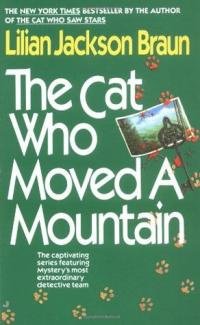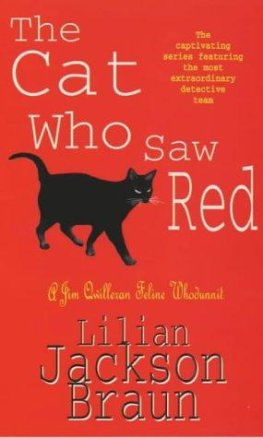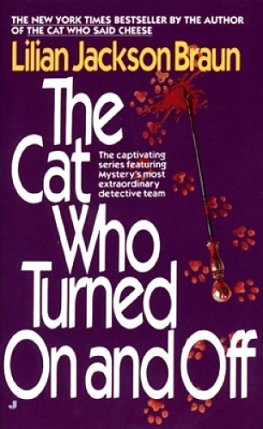
This edition is published by PICKLE PARTNERS PUBLISHINGwww.pp-publishing.com
To join our mailing list for new titles or for issues with our bookspicklepublishing@gmail.com
Or on Facebook
Text originally published in 1941 under the same title.
Pickle Partners Publishing 2016, all rights reserved. No part of this publication may be reproduced, stored in a retrieval system or transmitted by any means, electrical, mechanical or otherwise without the written permission of the copyright holder.
Publishers Note
Although in most cases we have retained the Authors original spelling and grammar to authentically reproduce the work of the Author and the original intent of such material, some additional notes and clarifications have been added for the modern readers benefit.
We have also made every effort to include all maps and illustrations of the original edition the limitations of formatting do not allow of including larger maps, we will upload as many of these maps as possible.
ARREST AND EXILE:
THE TRUE STORY OF AN AMERICAN WOMAN IN POLAND AND SIBERIA 1940-41
BY
LILIAN T. MOWRER
Author of Journalists Wife
With a Foreword by Olga Kochanska
Why heap curses upon Russia?...
This is a Slav quarrel, an old family affair
Already judged by Fate, and not one of you is capable of solving it.
It is an old struggle in which alternately we yield one to the other.
Who will win? the haughty Pole or the sturdy Russian?
Will all the Slav brooks unite in the Russian sea?
Leave us alone! You know nothing of these bloody pages of our history,
You have neither understanding nor sympathy for our family quarrels.
....they have no meaning for you and the only thing that stirs you
Is the useless courage of the desperate conflict.
PUSHKIN
TABLE OF CONTENTS
Contents
TABLE OF CONTENTS
REQUEST FROM THE PUBLISHER
DEDICATION
for
MY SISTER IN LONDON
this story of another woman
who could take it.
FOREWORD
Now back, safe in Chicago, memories of Siberia are like an evil dream.
Safe! Thats a conception difficult for Americans in the United States to understand. They are so accustomed to security that they have lost even the sense of danger. But in todays Europe such is not the case. Personal security is becoming ever more threatened.
I am a musician, not a writer. I can relate the story of my arrest and imprisonment in Siberia, but I never could have written itthe loneliness, the terror and heartbreak of those long months. Therefore I was pleased and gratified when Lilian Mowrer said she would work with me and write my story. Mrs. Mowrer knew Poland, Russia, and the Russians. As an experienced journalist she had every qualification for the work; as a sympathetic, warm-hearted friend she could understand my point of view and enter into my emotional experience. Yet, I wondered a little if anyone, even the author of Journalists Wife, could actually tell my story as it really happened without any loss of reality. Even when I was visiting Mrs. Mowrer in Washington and, with her as a companion, living through hour after hour, day after day, with her patient but relent-less searching for every detail, not only of events but of my inner thoughts and reactions, even then I wondered
Then she sent me the first few chapters, and I stopped wondering. As I read on I found myself back again in Lemberg, I heard the iron-shod footsteps of my Russian captors; then those long days in the freight car bound for Siberia, then those months a prisoner. It was all as though Lilian Mowrer had been my constant companion and confidant through that whole period of my life.
I cannot pay Mrs. Mowrers skill as a writer and an interpreter any higher tribute than to declare that my story as here told is true in the complete and ultimate sense of the word.
And here, too, I want to thank all the people in that prison camp who were so kind to me, and who rejoiced at my ultimate release without a trace of envy or bitterness. They made me realize again how fine and unselfish human beings can be and how much they can help each other. If my adopted country, Poland, has such people to build her up again after this war is over I know she will again take her place among the great nations of the world.
OLGA KOCHANSKA
Chicago
August 20, 1941
1. ARREST
AT two oclock in the morning of June 29, 1940, three figures could be seen stealthily picking their way through the hilly parkland of one of the residential sections of the romantically beautiful city of Lemberg. {1} The moon was still bright in the sky as they turned into the Obrony Lwowa Ulica, and the trees surrounding the tall houses threw sharp shadows on the sidewalks as the men crept along peering up at the numbers on the buildings. Deep silence reigned, a tomblike hush unnatural in a Polish city this size. There was no echo of footsteps from some belated reveller; no taxi hooted in the distance of the downtown theatre section around the Plac Halicki where sidewalk cafs usually collected a lively, chattering throng after the evening shows. Not even the rumble of market carts coming in from the country with their piles of cabbage, turnips and carrots broke the stillness of that summer night.
The citizens of Lemberg had been warned that they might expect an air raid and had been ordered to remain in their homes with the blinds drawn and all lights extinguished. And though it was nine months now since the Russians had invaded their country, and there had been no attacks or fighting in the town since their arrival, the townspeople did not dare disobey.
So now we know where to find them all, said Shura, the leader of the three men, winking at the others, and the threat of a raid puts them into a proper attitude of fear and makes it easier for us to deal with them.
He liked to give his companions tidbits of information like this, for he was a conceited fellow and felt immensely superior to all of them; he had seen service in a foreign country once before, while this was the first time they had ever been outside Russia.
They halted before the high walls of Number 16 and Shura pulled the bell with a violent jerk to show how very important he was. They did not have long to wait. A trembling little man fumbling at the buttons of his greatcoat, which he had hastily thrown over his nightshirt, was soon standing before them, timidly asking them what they wanted.
Kochanska...Olga Kochanska, does she live here? demanded Shura.
Up on the third floor, whispered the man, leading the way to the main stairway of the apartment building and turning on the electric light in the hall. The door on the right.
The three men stalked off without a word and mounted the low, wide staircase, their feet clattering on the uncarpeted stairs and making an unwonted echo through the building.
They rang the front doorbell and could hear its faint tinkle through the apartment. Nothing happened for a long time, then a light appeared for a moment as someone inside lifted the cover from a circular peephole in the door. An eye peered at them, then all was dark and silent again.














